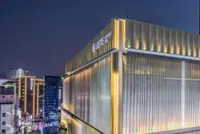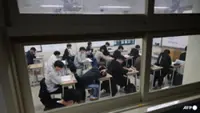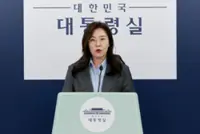South Korea President Yoon Suk-yeol arriving at the Corruption Investigation Office for High-ranking Officials in Gwacheon opn Jan 15, 2025 following his arrest. - Bloomberg
SEOUL: Yoon becomes first South Korean sitting president to be arrested, as presidential bodyguards show nearly no resistance to Yoon’s arrest
The joint investigative team handling suspended President Yoon Suk-yeol's arrest succeeded in taking him into custody Wednesday morning, as he became the first president in the country's history to be arrested on charges of leading an insurrection and committing abuse of power with his Dec 3 botched imposition of martial law.





